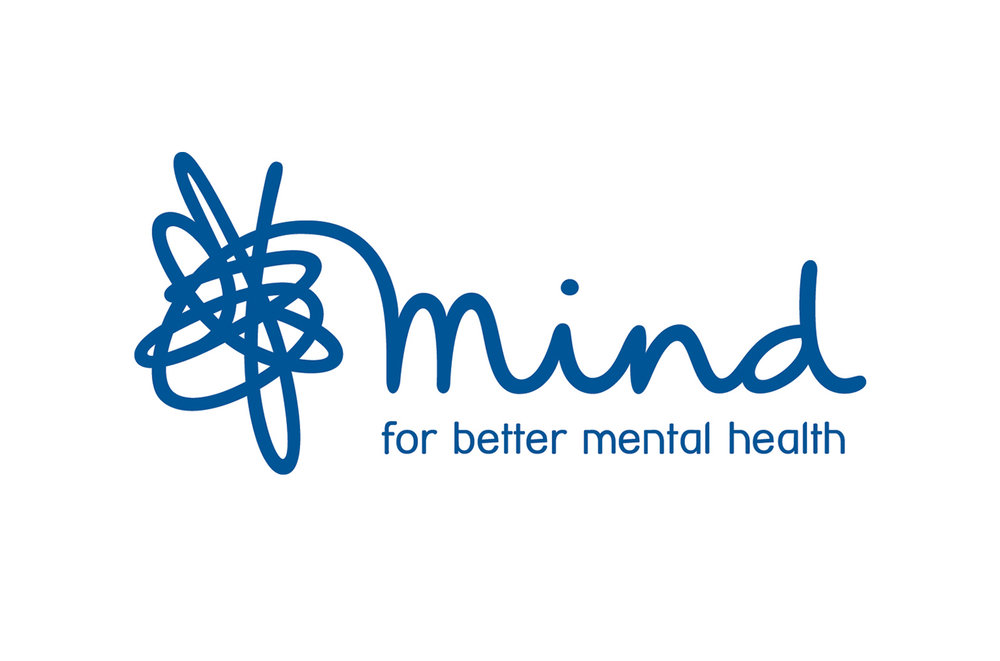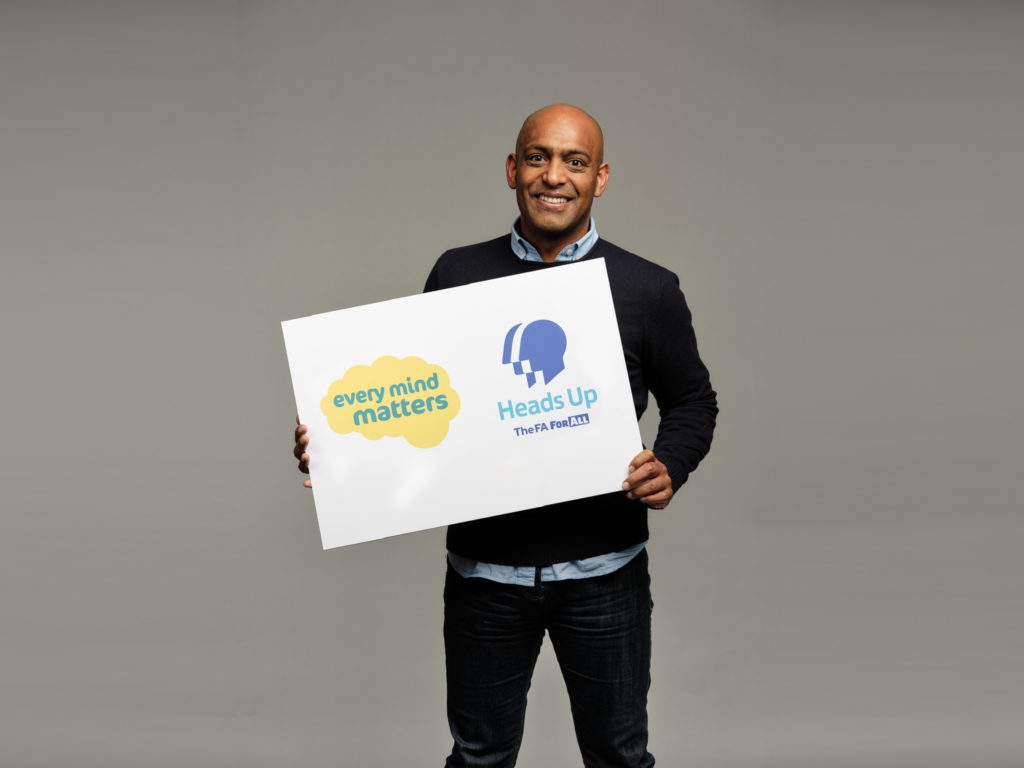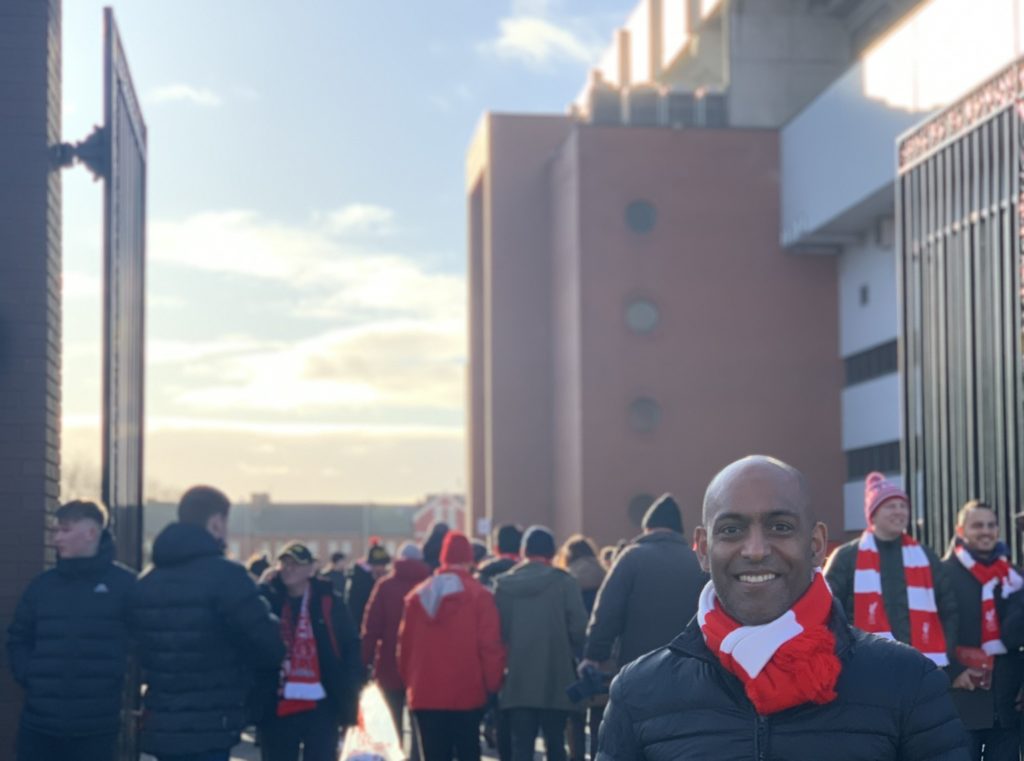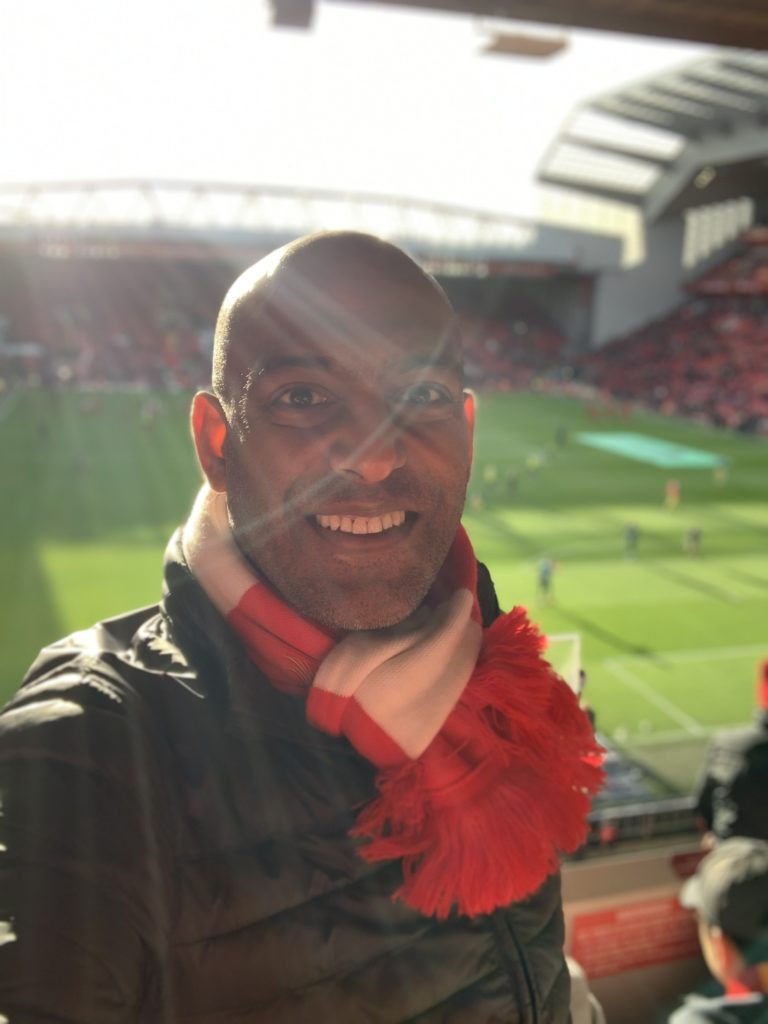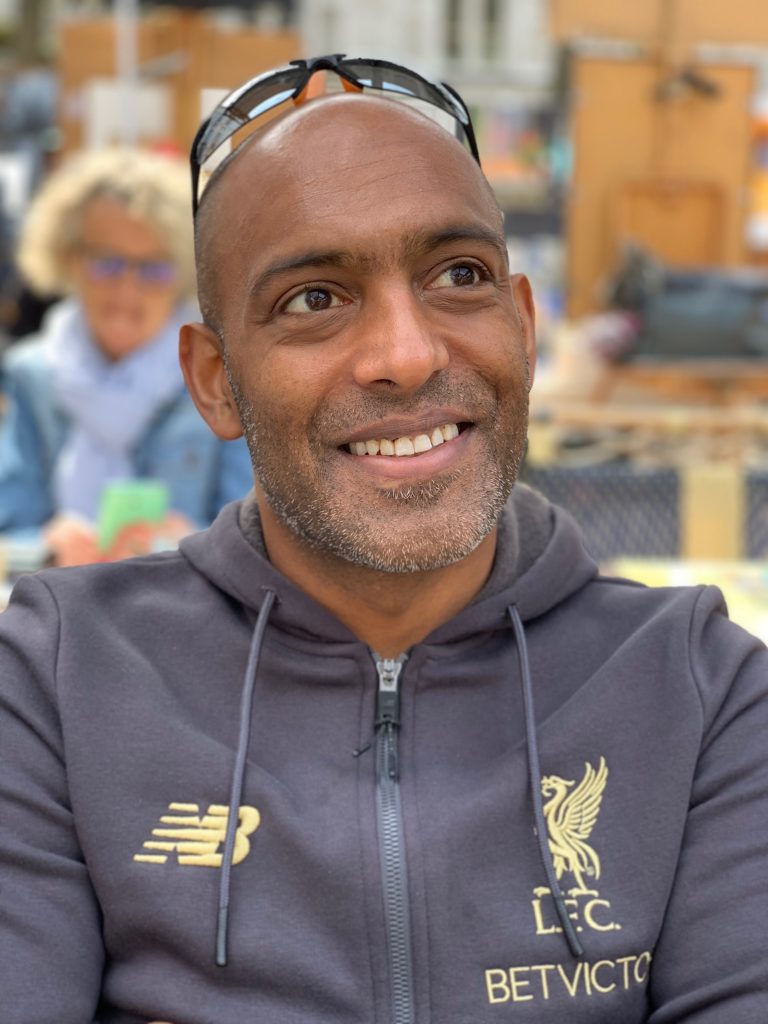‘The sound of support’ – A football fan’s story
For many people, reaching out for support can change their lives. For Rohan Kallicharan, reaching out to Mind in 2006 saved his life. Ever since, he has campaigned as an ambassador for the charity to help other people use their support services to improve their mental health.
“Mind saved my life back then, but recently they’ve reinvigorated that life and given it a real purpose and given me a real platform that I can reach out and help other people.
“For me, football was an absolute godsend when I was ill. I was so scared to speak for fear of being judged. When I’m with 50,000 people in a stadium it’s the time that I feel like I belong in the world. I’m part of something much bigger than myself, and I evolved.
“Support is someone taking the time to listen and not judge. It comes in many different shapes and sizes, but essentially it comes with being around people who you know will not judge you for being vulnerable. Sometimes it might be someone I go to for advice for my mental wellbeing, but other times I will go to someone just to go for a walk and talk about the game. Pre-match, we always go to the same place to get a pie, and it’s not the food that’s symbolic, it’s the conversation. We’re not talking about the game when we’re there, we’re just talking about what’s going on in each other’s lives and offering that support.”
“If someone was finding it difficult to open up and seek help, my message to them would be don’t worry, you don’t have to share it with the world. Share it with one person who’s going to listen and who cares and who can support you to make a difference. My message it is very brave to open up and be vulnerable, but it could change and transform your life, so don’t be scared to ask for help.”
When should I seek help?
Seeking help is often the first step towards getting and staying well, but it can be hard to know how to start or where to turn to. It’s common to feel unsure, and to wonder whether you should try to handle things on your own. But it’s always ok to ask for help.
You might want to seek help if you’re:
- worrying more than usual
- finding it hard to enjoy your life
- having thoughts and feelings that are difficult to cope with, which have an impact on your day-to-day life
- interested to find more support or treatment.
Who can I turn to?
There are lots of options for support out there, although you might find some are more suitable for you, or more easily available. There’s no wrong order to try things in – different things work for different people at different times.
- Friends, family, carers and neighbours
Sometimes it can help to talk to someone you trust about how you are feeling. They can help you find information and discuss options with you.
- Your doctor (GP)
For many of us, our local GP practice is the first place we go when we’re unwell (known as primary care). Your doctor is there to help you with your mental health as well as your physical health.
- A trained therapist
Trained therapists and counsellors provide a range of different therapies through the NHS, for which your doctor could refer you (known as secondary care). In some cases you might be able to contact them directly.
- Charity and third sector organisations
There are many national and local charities which offer various support services, such as helplines and listening services.
- Peer support
Peer support brings together people with similar experiences. Your peers can support you and listen to how you’re feeling, offer empathy and understanding, and share experiences and information, to help with self-care and support.
